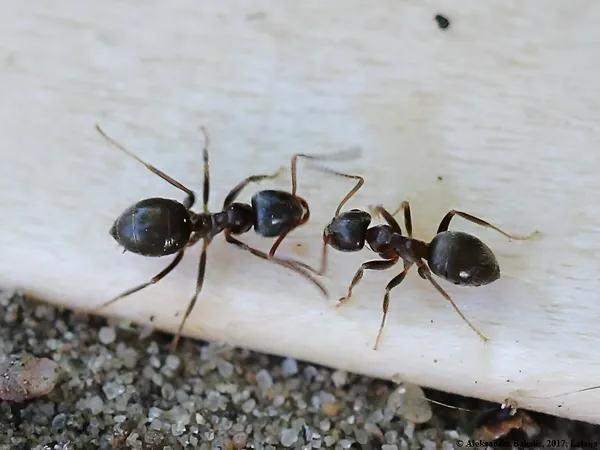
Shocking Ant Behavior: Queens Cannibalize Sick Offspring to Boost Colony Survival!
2024-09-24
Author: Mei
Introduction
In a groundbreaking study led by researchers at the University of Oxford, astonishing insights into the survival strategies of ant queens have emerged. Rather than nurturing their sick larvae, these formidable queens consume their infected offspring at the earliest signs of illness, effectively recycling them into vital energy for producing new eggs. This remarkable behavior was reported in the journal *Current Biology* and highlights the lengths to which ant queens go to keep their colonies thriving.
Survival of the Fittest
Founding ant queens, like those of the black garden ant (*Lasius niger*), often face tremendous vulnerabilities as they establish new colonies. During these initial stages, any threat of disease can wipe out their brood. The Oxford researchers posited that by eliminating sick larvae before they spread infection, queens could significantly enhance their chances of survival and success.
Experimental Findings
To investigate this theory, scientists exposed founding queens to larvae infected with the fungal pathogen *Metarhizium* for just 24 hours. They found that a staggering 92% of infected larvae were cannibalized by the queens, with no traces left behind, compared to only 6% of uninfected control larvae. Lead researcher Dr. Chris Pull emphasized the queens' immediate response, indicating that once sick larvae are identified, these queens engage in an intense chewing process to consume them entirely.
Defense Mechanisms
What’s more, these queens didn’t just take a significant risk by eating infected larvae; they appeared to have a cunning defense mechanism in play. Researchers observed that all queens survived this perilous act, possibly thanks to an acidic, antimicrobial venom they produce from glands at the end of their abdomens. During the cannibalism, some queens were seen massaging this gland, potentially using the venom as an added layer of protection against infection.
Reproductive Benefits
The benefits of this cannibalistic behavior were evident: the queens that consumed their sick offspring went on to lay 55% more eggs than those that did not, indicating that the nutrients from the ingested larvae were successfully repurposed for brood production. Co-author Flynn Bizzell noted the dire conditions under which queens operate, often starving themselves to raise their early workers. The ability to consume and recycle nutrients from sick larvae is a strategic advantage that prevents resource wastage, enhancing the survival odds of the colony.
Behavioral Adaptations
Interestingly, when presented with larvae at an advanced infectious stage, the queens abstained from consuming them. Instead, they deployed their antimicrobial venom to spray the diseased larvae, illustrating a shift in behavior based on the severity of the infection. Despite these efforts, a significant 80% of queens still contracted the disease and perished, further underscoring the importance of acting before larvae become infectious.
Unique Cannibalistic Behavior
What's particularly fascinating is that this phenomenon of “hygienic cannibalism” is unique to queens, with no evidence of mature worker ants displaying similar behavior. This difference may stem from their contrasting roles; while queens remain sealed in the nest, worker ants are better equipped to dispose of infected larvae by transporting them away from the colony.
Conclusion
In conclusion, this astonishing and somewhat macabre behavior among ant queens not only sheds light on the survival mechanisms of these insects but also demonstrates a complex interplay of cannibalism and disease management in maintaining colony health. As researchers continue to unveil the intricacies of ant societies, this study aptly shows how evolution can redirect maternal instincts into advantageous survival strategies. Could this discovery lead to further understanding of social insects' behavior and their adaptation skills? Only time will tell!

 Brasil (PT)
Brasil (PT)
 Canada (EN)
Canada (EN)
 Chile (ES)
Chile (ES)
 España (ES)
España (ES)
 France (FR)
France (FR)
 Hong Kong (EN)
Hong Kong (EN)
 Italia (IT)
Italia (IT)
 日本 (JA)
日本 (JA)
 Magyarország (HU)
Magyarország (HU)
 Norge (NO)
Norge (NO)
 Polska (PL)
Polska (PL)
 Schweiz (DE)
Schweiz (DE)
 Singapore (EN)
Singapore (EN)
 Sverige (SV)
Sverige (SV)
 Suomi (FI)
Suomi (FI)
 Türkiye (TR)
Türkiye (TR)